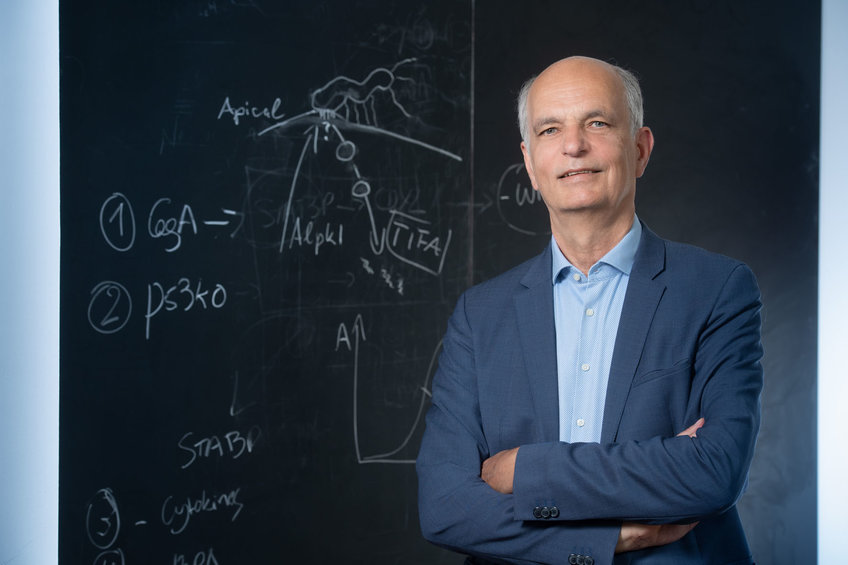
Prof. Dr. Thomas F. Meyer
Director Emeritus
During his Ph.D. at the Max Planck Institute (MPI) for Medical Research in Heidelberg, Thomas F. Meyer started his career by establishing an in vitro replication system of bacteriophage fd. In 1980 he became interested in mobile elements and began pioneering investigations of the molecular basis of pilin antigenic variation in Neisseria with Prof. M. So at the Cold Spring Harbor Laboratory and the Public Research Institute, New York, as a postdoctoral fellow. Back in Heidelberg as a staff scientist at ZMBH (Centre for Molecular Biology of Heidelberg University) in 1982, he discovered the first example of variable gene expression based on the variation of short repeats (slipped strand mispairing). After moving to MPI for Biology, Tübingen, he discovered neisserial IgA protease as the first example of the large family of bacterial autotransporter proteins and explored its secretory pathway. In the late 80's his focus shifted gradually towards the pathogen-host cell interface, where he discovered central adhesins and host cell receptors crucial for the neisserial infection. As appointed Director of the Department of Infection Biology in Tübingen (1990) and Founding Director of the new Max Planck Institute for Infection Biology in Berlin (1994), he continued to explore crucial aspects of pathogen-host cell interactions using Neisseria, Chlamydia and Helicobacter as key model systems. After relocating to MPI's new purpose built facilities in 2001, and with the discovery of short interfering RNAs (siRNA) applicable to gene knockdown in human cells, he placed an emphasis on the exploration of human gene function during infection. Besides other projects, he coordinated the EU FP6 RIGHT project on the application of RNAi for human therapy (2005 to 2009). He is now Director of the Molecular Biology Department and his lab runs Europe's unique BSL3 screening facility. Prof. Meyer holds professorships at the Charité University Medicine and the Humboldt University, Berlin, and is a member of EMBO and the German Academy of Sciences Leopoldina. His current research interests focus on the global understanding of infection processes, the manifestation of heritable epigenetic marks upon infection, and the sequels of long-term chronic infection, such as cancer.